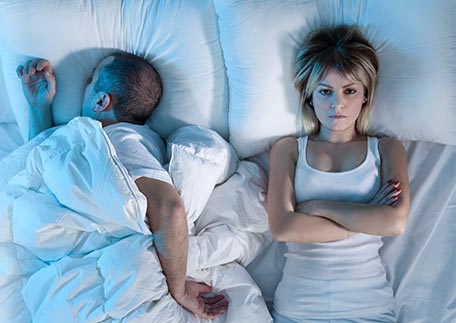With society engulfed in a technologically-driven world, it’s no surprise that people are sleeping less each night. What’s to blame? According to studies, cell phones and computers are the biggest distractors.
Many sleep specialists have reported that texting is still on the rise, especially among adolescents and young adults. According to studies, teenagers send an average of 100 text messages a day and are now even responding to text messages subconsciously. It happens so frequently that it’s been given a name—“sleep texting.”
“The phone will beep [and] they’ll answer the text,” said Elizabeth Dowell, a nursing professor at Villanova University. “They’ll either respond in words or gibberish. [It] can even be inappropriate. Ex-girlfriends contacting ex-boyfriends, saying ‘I miss you; I want to see you.’ The thing that happens, though, is that when they wake up, there’s no
memory.”
And this doesn’t only happen to teenagers. Dr. Michael Breus, a clinical psychologist and sleep specialist, told the Huffington Post that based on his conversations with patients, he believes that anyone who sleeps with a phone nearby is susceptible to this growing trend.
“It’s basically what we call an arousal disorder,” said Breus. “Somebody gets woken up but is not completely awake from the process of sleeping.”
The bottom line is that this behavior is negatively affecting the bottom line. According to a Harvard Medical School study, chronic exhaustion is costing the economy $63.2 billion in lost productivity. Because of this, employers nationwide are finding ways to encourage workers to sleep better at night. Experts suggest that adults should sleep seven to nine hours per night, while teenagers need more than that to function properly.
What can you do to improve your sleep schedule? The National Sleep Foundation suggests that you:
- Treat your bedroom as your sanctuary—by creating a comfortable, distraction-free area, your body will recognize your bedroom as a place to relax, thus allowing you to fall asleep faster.
- Adjust the lighting—turn off your phones, televisions and iPads one hour before hitting the hay. The light emitted from these devices stimulates your eyes and increases alertness levels. In addition, ensure your room will stay dark from the time you fall asleep until you wake up in the morning. Use curtains/shades if you don’t already.
- Establish a routine—when your body gets into a routine, it’s much easier to function day-to-day. It’s important to go to bed and wake up the same time every day. And yes, that means on weekends too!
- Cut the caffeine—it’s not a bad idea to skip that extra cup of coffee while watching the evening news. Experts recommend that you stop all caffeine consumption by 2 p.m. Eliminating large meals and alcohol before bedtime will also help you sleep better at night.
- Remember to exercise—Exercising isn’t just for looks. Exercising in the morning will also help you sleep better at night. Just remember to avoid rigorous exercising too close to bedtime.

